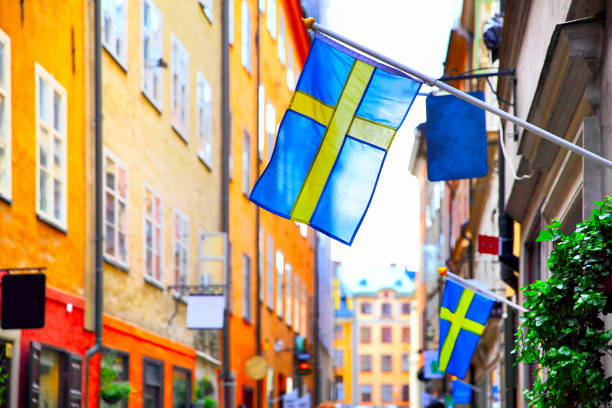Swedish Exceptionalism: Pandemic Response, Public Trust, and Constitutional Design

By Orlaith Rice
Sweden’s response to the Covid-19 pandemic is one that has attracted global commentary. It has been categorised as ‘the EU’s exception’, a ‘pariah state’, and been labelled ‘anti-lockdown’, ‘experimental’, ‘light-touch’, and ‘naïve’. Since Covid-19 was first declared a pandemic in March 2020, Sweden has never imposed a national lockdown, enforced general quarantine rules, or imposed a mask mandate. As of February 2022, most remaining Covid-19 related restrictions have now been lifted. Hospitality and retail continued to operate throughout the pandemic and most schools retained in-person teaching. There was no interruption to the workings of Parliament and the Courts. The Swedish government did enact over 100 pieces of legislation related to Covid-19 in 2020, but these were mostly of a time-limited nature. For example, the provisions of temporary legislation brought in April 2020 had not been utilised at all by the time they expired in July 2020. Despite this controversial, less invasive approach, evidence suggests that there have been high levels of compliance with recommendations in Sweden to limit the spread of Covid-19, for example, to maintain physical distance and to work from home where possible.
Many explanations of Sweden’s ‘exceptionalism’ fail to acknowledge that the Swedish strategy was, to an extent, predetermined by its institutional structure. The Swedish Constitution (the Fundamental Laws: Grundlagarna) does not provide for a state of emergency for a public health crisis. A state of emergency can only be declared in times of war. Thus, there was no option for the executive to suspend rights and freedoms, e.g., freedom of movement, to curb the spread of Covid-19. The option of a national lockdown to control the spread of an infectious disease was likely simply not foreseen at the time the Constitution was written. Ordinary law regulates health emergencies in Sweden, particularly the Communicable Diseases Act 2004.
However, other countries that similarly could not suspend rights outside of wartime did, nonetheless, introduce lockdown measures on the basis of the authorities’ view that this could be done in a way that was consistent with constitutional requirements of proportionality and due process (e.g. Ireland). For example, the Communicable Diseases Act 2004 provides for the use of quarantine in Sweden if deemed necessary. Despite this, the government did not bring in mandatory quarantine rules for infected persons. Sweden was unusual in its soft law approach even accounting for the constitutional restraints that existed before 2020.
The Swedish Constitution does allow for limiting public gatherings during an epidemic, which the government did implement, at one point limiting such gatherings to a maximum of 50 people. The Constitution is also characterised by decentralised power sharing and gives a lot of power to independent bodies, such as the Public Health Agency (Folkhälsomyndigheten). The Swedish strategy relied heavily on non-binding recommendations coming from the Public Health Agency and State Epidemiologist Anders Tegnell. While the government can reject these recommendations, in practice it does not. Sweden’s epistocratic and technocratic structure of governance facilitated a public health response led almost solely by public health experts, not politicians.
Furthermore, the Social Democrats and the Greens have been in a minority government since 2018. This weak position may have dampened any desire to enact extraordinary legislation which may have triggered a vote of no confidence. In addition, the executive response was concerned with principles of necessity and proportionality, in accordance with the rule of law. Moreover, the Public Health Agency is obliged to act in the interests of public health in a holistic way, and thus its recommendations did not have the sole purpose of preventing the spread of Covid-19 at the expense of other aspects of public health. Anders Tegnell characterised his approach as sustainable and has also cited the lack of existing scientific evidence to support lockdowns as a factor in his decision-making.
Other elements at play in shaping Sweden’s approach include Swedish culture, a strong tradition of liberalism, and Sweden’s reputation as a high trust state. Swedes have long had high levels of institutional and interpersonal trust, which are key factors when it comes to compliance with Covid-19 restrictions, voluntary or otherwise. Not only was this trust present before the pandemic, it increased in early 2020 in a ‘rally around the flag’ effect. While a later study found that interpersonal trust decreased somewhat as the pandemic progressed, institutional trust was unaffected and remained high. Swedes also have high trust in researchers. Thus, the government response, which relied on trust and personal responsibility, mirrored the norms and values held by the Swedish public. For example, after public support for the laissez-faire strategy waned after the first Covid-19 wave, the executive passed the Covid-19 Act 2021, which restricted rights in a way that would likely have been socially unacceptable up until that point.
The purpose of this blog is not to evaluate Sweden’s approach in terms of its public health outcomes, but to illuminate the institutional context of the response and the factors affecting compliance with restrictions that were not mandated by government. Sweden’s constitutional framework provided a roadmap for addressing the pandemic long before it began, and can at least partly explain the largely voluntary approach and the expectations by government of personal responsibility throughout the Covid-19 pandemic.